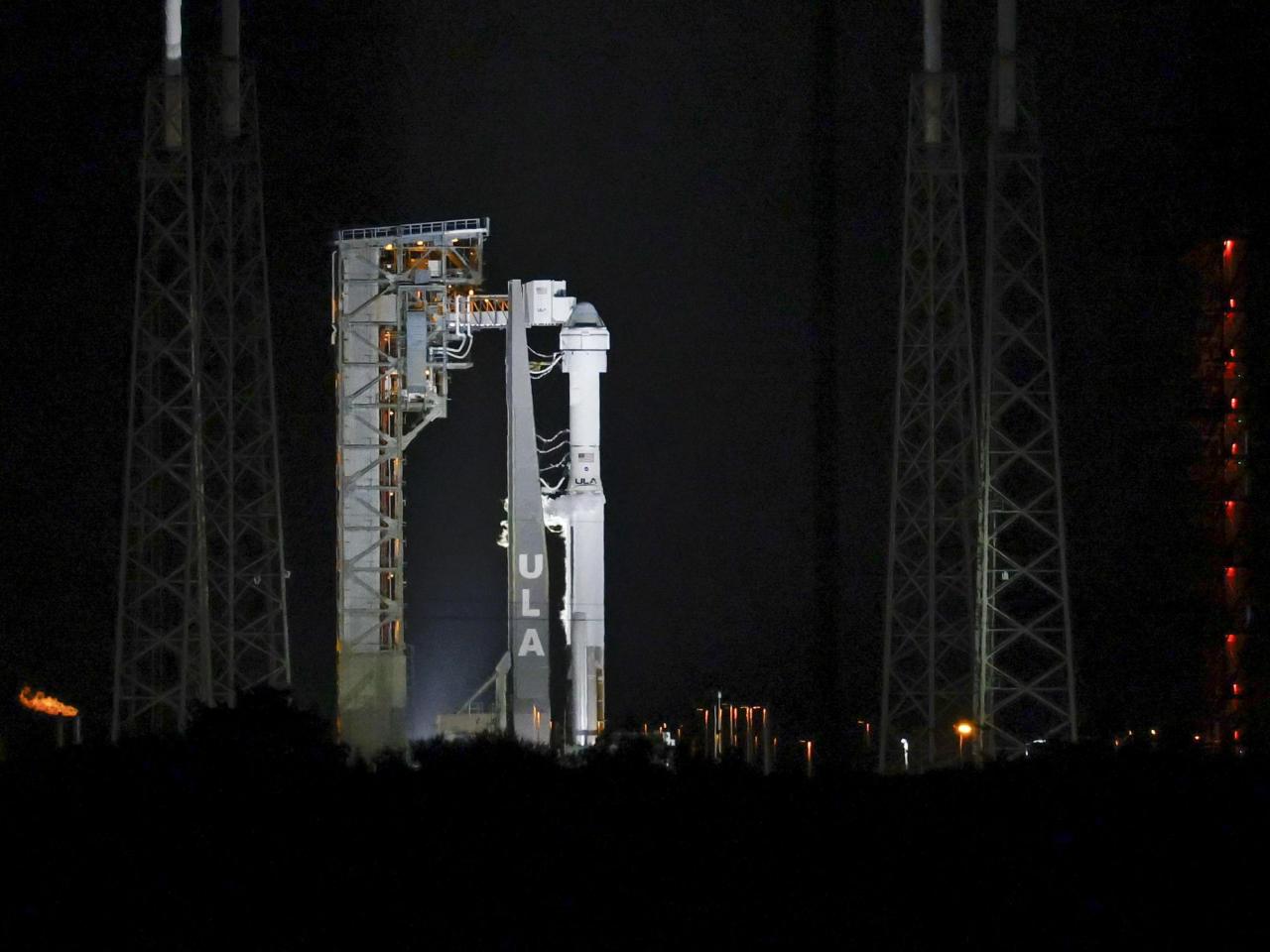Boeing calls off its first astronaut launch because of valve issue on rocket
CAPE CANAVERAL, Fla. (AP) — Boeing called off its first astronaut launch because of a valve problem on the rocket Monday night.
The two NASA test pilots had just strapped into Boeing’s Starliner capsule for a flight to the International Space Station when the countdown was halted, just two hours before the planned liftoff.
United Launch Alliance CEO Tory Bruno said an oxygen pressure-relief valve on the upper stage of the company’s Atlas rocket started fluttering open and close, creating a loud buzz.
The valve may have exceeded its 200,000 lifetime cycles, Bruno said, which means it would have to be replaced, pushing the launch into next week. But if engineers can determine the valve is still within that limit, the launch team could try again as soon as Friday.
It was the latest delay for Boeing’s first crew flight, on hold for years because of capsule trouble.
Bruno said similar valve trouble had occurred in years past on a few other Atlas rockets launching satellites. It was quickly resolved by turning the troublesome valves off and back on. But the company has stricter flight rules for astronaut flights, prohibiting valve recycling when a crew is on board.
“And so we stayed with the rules and the procedures, and scrubbed as a result,” Bruno said at a press conference.
NASA’s commercial crew program manager Steve Stich acknowledged it was a tough call.
“We’re taking it one step at a time, and we’re going to launch when we’re ready and fly when it’s safe to do so,” Stich told reporters.
Within minutes of the countdown halting, Boeing’s new astrovan was back at the launch pad to retrieve Butch Wilmore and Suni Williams from their pad at Cape Canaveral Space Force Station.
Starliner’s first test flight without a crew in 2019 failed to reach the space station and Boeing had to repeat the flight. Then the company encountered parachute issues and flammable tape.
NASA hired Boeing and SpaceX a decade ago to ferry astronauts to and from the space station after the shuttle program ended, paying the private companies billions of dollars. SpaceX has been in the orbital taxi business since 2020.
___
The Associated Press Health and Science Department receives support from the Howard Hughes Medical Institute’s Science and Educational Media Group. The AP is solely responsible for all content.
Source: wral.com
